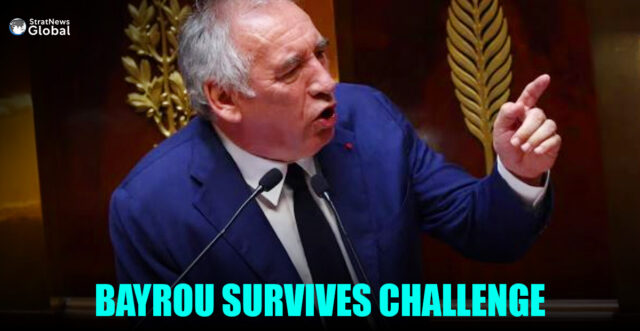French Prime Minister Francois Bayrou overcame another no-confidence motion in parliament on Tuesday, after lawmakers from the far-right National Rally (RN) chose not to support the measure put forward by his left-wing opponents.
The measure garnered 189 votes, falling well short of the threshold needed to oust the government. The RN again abstained, enabling Bayrou to retain his post.
It marked his eighth defused no-confidence attempt since December, underlining persistent instability but continued survival amid France’s hung parliament.
Despite surviving his latest no-confidence motion since taking office, Bayrou’s premiership appears increasingly shaky. He now finds himself in the same position as his predecessor Michel Barnier, whose three-month stint as prime minister ended after the National Rally called time on his rule.
Officials from the RN – the single largest party in the National Assembly but short of a majority – said they would not back the no-confidence motion. They prefer to refrain until later in the year, when even more complex talks over passing the 2026 budget threaten to once again topple France’s government.
Uphill Challenge
Bayrou faces an uphill challenge to secure 40 billion euros in spending cuts for the 2026 budget.
The Socialists filed the no-confidence motion after months-long talks to tweak the country’s disputed pension reform ended without a deal. Bayrou convened the talks to secure the Socialists’ support against an earlier no-confidence motion, but their fragile accord is now dead.
RN party president Jordan Bardella, interviewed on CNews on Monday, gave no indication the RN would back the no-confidence measure. Instead, he called on French President Emmanuel Macron to dissolve parliament and call fresh legislative elections.
Macron, whose second and final term as president will end in 2027, called a snap parliamentary vote last year after the RN surged in European Parliament elections. He can dissolve Parliament again from July 8.
“I don’t see how anything healthy can emerge between now and 2027,” Bardella said.
(With inputs from Reuters)





